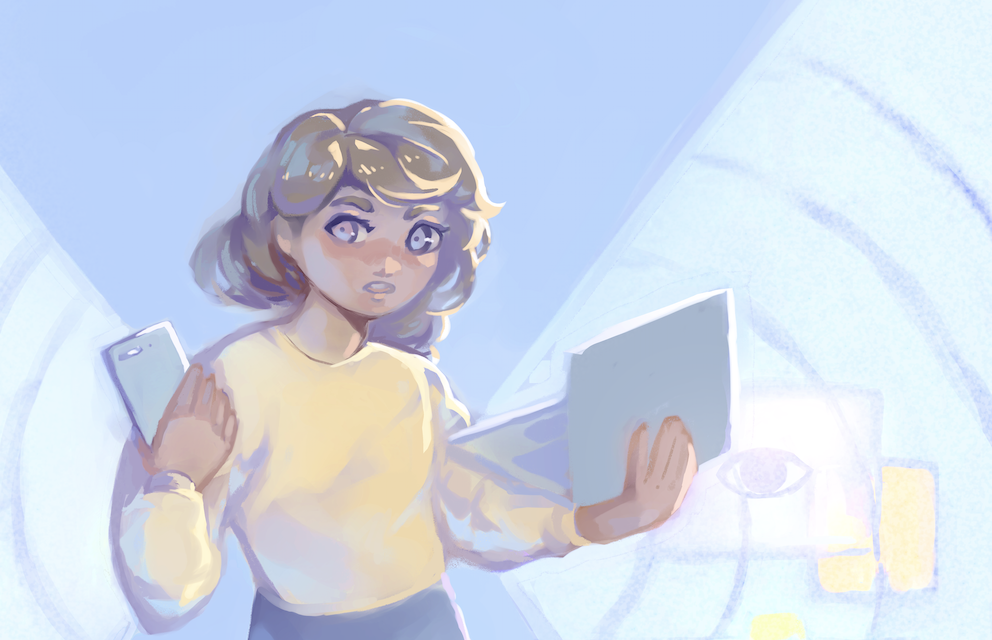[et_pb_section fb_built=”1″ make_fullwidth=”on” specialty=”on” padding_top_1=”-25px” padding_top_2=”-25px” padding_left_1=”50px” padding_left_2=”50px” module_class=”ds-fullwidth-specialty” _builder_version=”3.0.85″ custom_padding=”15px|50px|20px|0px”][et_pb_column type=”2_3″ specialty_columns=”2″ _builder_version=”3.0.47″ padding_left__hover=”50px” padding_top__hover=”-25px” parallax__hover=”off” parallax_method__hover=”on” padding_left=”50px” padding_top=”-25px” parallax=”off” parallax_method=”on”][et_pb_row_inner admin_label=”Row” _builder_version=”3.0.85″][et_pb_column_inner type=”4_4″ saved_specialty_column_type=”2_3″ _builder_version=”3.0.47″ parallax__hover=”off” parallax_method__hover=”on” parallax=”off” parallax_method=”on”][et_pb_post_title author=”off” comments=”off” featured_image=”off” _builder_version=”3.0.86″ title_font=”|700||on|||||” title_text_align=”center” title_font_size=”42px” meta_text_align=”center” meta_font_size=”18″ text_orientation=”center” custom_margin=”-10px|||” custom_padding=”|||”][/et_pb_post_title][/et_pb_column_inner][/et_pb_row_inner][et_pb_row_inner admin_label=”Row” _builder_version=”3.0.47″][et_pb_column_inner type=”1_2″ saved_specialty_column_type=”2_3″ _builder_version=”3.0.47″ parallax__hover=”off” parallax_method__hover=”on” parallax=”off” parallax_method=”on”][et_pb_text _builder_version=”3.0.86″]
K
eystroke trackers providing unlimited access to student passwords and searches. The ability to take control of any student computers at any time, hijacking the device. A way to review web traffic from any device that has ever connected to Nueva Wi-Fi, regardless of whether it is a personal machine. Throughout the years, the Tech Office has been accused of having all manner of tracking systems—and using them for all sorts of covert surveillance.
The students’ paranoia, however, is unfounded: the Tech Office never looks at students’ machines without first being asked to do so by the school administration and ensuring that the reason for the request is valid. This is primarily due to privacy concerns—in the words of Technology Director Ed C., they have no desire to “stick [their] noses where it’s none of [their]
[/et_pb_text][/et_pb_column_inner][et_pb_column_inner type=”1_2″ saved_specialty_column_type=”2_3″ _builder_version=”3.0.47″ parallax__hover=”off” parallax_method__hover=”on” parallax=”off” parallax_method=”on”][et_pb_text _builder_version=”3.0.86″]
business.”
Collecting the data necessary to read a student’s search history from a minute-long stretch can take as many as four hours. For this reason, as well as the importance of maintaining student privacy, the predicted utility of the requested information is carefully reviewed before requests are filled.
“You can collect all the data in the world,” Ed said. “That’s fantastic, but the key question in terms of data is, what are you going to do with it? Are you, the teacher or administrator, prepared for it? Are you prepared to figure out what the next step will be?”
The goal of any inquiry is to enact change to solve the situation that led the administration to ask for the data in the first place.
[/et_pb_text][/et_pb_column_inner][/et_pb_row_inner][et_pb_row_inner admin_label=”Row” _builder_version=”3.0.47″][et_pb_column_inner type=”4_4″ saved_specialty_column_type=”2_3″ _builder_version=”3.0.47″ parallax__hover=”off” parallax_method__hover=”on” parallax=”off” parallax_method=”on”][et_pb_testimonial author=”Ed C.” job_title=”Technology Director” text_orientation=”center” quote_icon_color=”#0083b6″ _builder_version=”3.16″ body_text_color=”#0083b6″ body_font_size=”24″ body_text_shadow_horizontal_length=”0em” body_text_shadow_vertical_length=”0em” body_text_shadow_blur_strength=”0em” box_shadow_style=”preset1″ custom_padding=”75px|50px||50px” animation_style=”fade”]
Common sense has a lot to do with it, and we do value individual privacy. We also value our own time.
[/et_pb_testimonial][/et_pb_column_inner][/et_pb_row_inner][et_pb_row_inner admin_label=”Row” _builder_version=”3.0.47″][et_pb_column_inner type=”1_2″ saved_specialty_column_type=”2_3″ _builder_version=”3.0.47″ parallax__hover=”off” parallax_method__hover=”on” parallax=”off” parallax_method=”on”][et_pb_text _builder_version=”3.0.86″]
“If [the information] will change anyone’s actions, whether the student’s, the teacher’s, or the school’s, then I think that it would be significant,” Ed said. “If it won’t, then I’m thinking ‘Yeah, don’t waste my time or theirs.’”
This mindset means that the amount of monitoring that actually occurs is incredibly limited, to the point of being nonexistent; in the Upper School’s six years of operation, there has only been one instance where the Tech Office has gathered data from the laptop of a student. In light of this, the concerns about data collection seem out of place, though Ed has an idea of where they may be coming from.
“I think [the paranoia] comes from the fact that many of the students come up from the Middle School.
[/et_pb_text][/et_pb_column_inner][et_pb_column_inner type=”1_2″ saved_specialty_column_type=”2_3″ _builder_version=”3.0.47″ parallax__hover=”off” parallax_method__hover=”on” parallax=”off” parallax_method=”on”][et_pb_text _builder_version=”3.16″]
There’s a little bit more monitoring of students in the Middle School, and that carries over from students who have been here since then.”
Another possible source of the widespread concerns about tech office surveillance is the Tech interns that the school hires each summer.
“They’ve seen the capabilities that we do have if we choose to wield [them]; I think they’re probably sharing a little bit about what they’re seeing,” Ed said. “They’re telling people, ‘Oh, yeah, we could actively monitor this and that,’ and yes, we could, but in practical reality we don’t.”
In actuality, the Tech Office is more focused on collecting data to improve its systems than monitoring individual students.
[/et_pb_text][/et_pb_column_inner][/et_pb_row_inner][et_pb_row_inner _builder_version=”3.16″][et_pb_column_inner type=”4_4″ saved_specialty_column_type=”2_3″ _builder_version=”3.0.47″ parallax__hover=”off” parallax_method__hover=”on” parallax=”off” parallax_method=”on”][et_pb_testimonial author=”Ed C.” job_title=”Technology Director” text_orientation=”center” quote_icon_color=”#0083b6″ _builder_version=”3.16″ body_text_color=”#0083b6″ body_font_size=”24″ body_text_shadow_horizontal_length=”0em” body_text_shadow_vertical_length=”0em” body_text_shadow_blur_strength=”0em” box_shadow_style=”preset1″ custom_padding=”75px|50px||50px” animation_style=”fade”]
Upper School students are free to do pretty much whatever they need to do. Yes, we can get information [about what they’re interacting with on the internet], but what do we do with that information without cause? Absolutely nothing.
[/et_pb_testimonial][/et_pb_column_inner][/et_pb_row_inner][et_pb_row_inner admin_label=”Row” _builder_version=”3.0.47″][et_pb_column_inner type=”1_2″ saved_specialty_column_type=”2_3″ _builder_version=”3.0.47″ parallax__hover=”off” parallax_method__hover=”on” parallax=”off” parallax_method=”on”][et_pb_text _builder_version=”3.0.86″]
This data can then be used to prioritize internet access for certain programs, as in a case last year where the yearbook class was found to be using gigabytes of data every meeting to download photos and spreads. In order to make the process easier, the Tech Office installed a better wireless access point to accommodate the amount of data being transferred.
Similar adjustments can be made to prioritize certain types of web traffic over others. These filter systems, called bandwidth controls, are used to “throttle down” how much bandwidth a given website is allowed to use, according to Ed.
[/et_pb_text][/et_pb_column_inner][et_pb_column_inner type=”1_2″ saved_specialty_column_type=”2_3″ _builder_version=”3.0.47″ parallax__hover=”off” parallax_method__hover=”on” parallax=”off” parallax_method=”on”][et_pb_text _builder_version=”3.16″]
The Tech Office also has other methods of moderating how students interact with online spaces. They use a web filter, which allows them to block certain categories of websites, such as those flagged as violent or noted to contain adult content. This filtration system is mainly used at the Middle School, where it blocks out many types of content; at the Upper School, it only prevents community members from accessing gambling or pornography sites.
[/et_pb_text][/et_pb_column_inner][/et_pb_row_inner][/et_pb_column][et_pb_column type=”1_3″ _builder_version=”3.0.47″ padding_left__hover=”50px” padding_top__hover=”-25px” parallax__hover=”off” parallax_method__hover=”on” padding_left=”50px” padding_top=”-25px” parallax=”off” parallax_method=”on”][et_pb_team_member name=”Written by Grace H.” position=”Opinion Editor” image_url=”http://www.thenuevacurrent.com/wp-content/uploads/2018/10/Screen-Shot-2018-10-07-at-11.35.02-AM.png” _builder_version=”3.16″ header_font=”|700|||||||” custom_margin=”||50px|”][/et_pb_team_member][et_pb_sidebar area=”sidebar-main” _builder_version=”3.0.85″][/et_pb_sidebar][/et_pb_column][/et_pb_section]


Leave a Reply